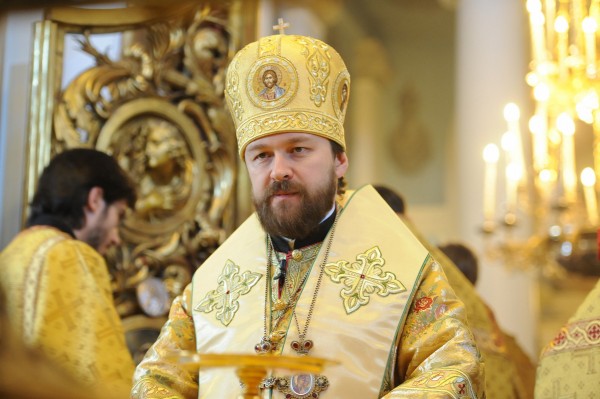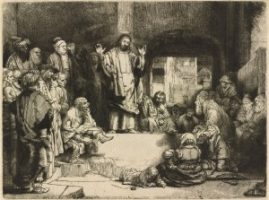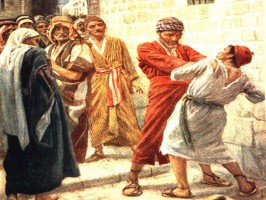A certain man owed the king a large sum: 10,000 talents. But when the king wanted to receive this money from him, it turned out that he had nothing with which to pay him, and the king forgave his debt. This man, recognizing the gravity of his financial situation, decided to collect money from his own debtors. Meeting a man who owed him 100 denarii, he began to choke him, demanding repayment of the debt (Matthew 18:23-35).
This parable, which we have repeatedly heard and read, teaches us several things. First is the fact that we are all debtors before God, and the debt of each of us is very large. And the only reason we do not pay back this debt is that the Lord never seeks, in contrast with the king from the parable, to settle accounts with us. If the Lord decided to require that we repay this debt, if it were calculated how many of the talents He has given us we have made use of indeed, and how many we have wasted in vain, then, of course, we would have no excuse for our unpreparedness to fulfill the work of God, for our reluctance to follow the Gospel, for our inability to find what use the received talents have been put to, and for our passivity and laziness.
Second, the Lord’s parable shows us that we rarely think of ourselves as being in debt to God. Forgetting that each one of us has received from the Lord a multitude of great and small gifts, and taking these gifts for granted, we are always seeking something more from God and, if we do not receive what we desire, we become insulted or irritated. We consider that, in addition to those 10,000 talents that the Lord has already given us, we should receive from Him yet more talents and, if we do not receive them, we consider ourselves offended and cheated. After all, the problem is not that we have been given little, but that the riches we have been given we have not put into circulation, but have buried them in the ground, and therefore not only do they not make a profit, but they are not enough to make sure that we can pay off our debts.
Third, the parable that we heard today speaks of our relationship with our neighbors. The Lord gives us very much, but we give our neighbors very little. The Lord generously shares with us His grace and His gifts, but we begrudge people money, things, time, and attention; we fear wasting the talents given to us, forgetting that, if we do not put them into circulation, they will lose value, just as money, when withdrawn from real circulation, turns into useless pieces of paper. The Lord has given us talents not so that we would guard their wealth ourselves, but so that we would share them with our neighbors.
The Lord forgives us our debts, but we must forgive our debtors. In the “Our Father” prayer, we daily repeat: “And forgive us our debts, as we forgive our debtors.” But if we are to have any right to turn with this request to God, we should forget about the debts of other people to us and remember only our own debts before others. The Lord forgives us all our debts; He has enough generosity, mercy, and love to forgive any sin, but on one condition: that we also will forgive people. Everything is interconnected in life, and therefore if we are awaiting forgiveness and mercy from God, then we should be able to show mercy ourselves, which we should provide to those near and far.
Let us put ourselves before the judgment seat of this parable. And if there is anyone whom we have been unable to forgive, let us forgive him. If someone is our debtor, let us forgive him his debt, that the mercy and grace of God would be with us always. Amen.
September 3, 2000
Translated from the Russian




















